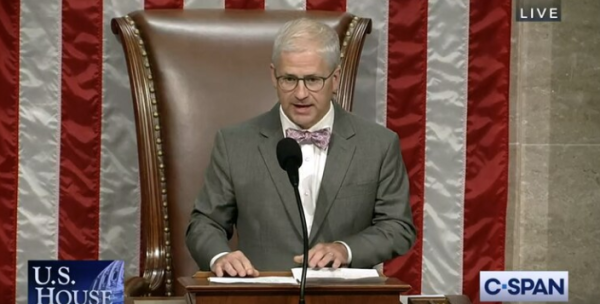
Environmental fines à la carte are promoted by the Ministry of Environment and Energy. The government changes the process of imposing fines for violations that harm the environment and links their amount to the turnover of each company. In other words, if two companies are caught for a similar environmental crime, the lowest fine will be imposed to the one with the lowest turnover, as well as to those which show shrinking income – something really common in Greece where the circulation of “black” money has not yet been controlled.
However, according to an amendment tabled to the energy efficiency bill, for anyone who causes any pollution or any other environmental degradation, depending on the severity, the frequency, the recurrence and the damage that the breach entails in the protection of the public interest,it is provided by a simple written recommendation and by fines (from 500 euros up to 5,000,000 euros), until the temporary or permanent cessation of the operation of a business. However, the fines imposed to the companies that pollute the environment are distributed according to the category of the violation, as follows:
(a) for minor offenses, the fine shall not exceed 0.5% of the annual turnover (gross revenue) and may range from 500 euros to 50,000 euros;
(b) for infringements of moderate severity, the fine shall not exceed 1.5% of the annual turnover and shall range from 10,000 euros to 200,000euros ;
(c) for serious infringements, the fine shall not exceed 6% of the annual gross revenue and shall range from 40,000 euros to 800,000 euros;
d) for very serious infringements, the fine shall not exceed 10% of the turnover and shall range from 100,000 euros to 5,000,000 euros.
In case of recurrence, the percentages on the company’s turnover will double. The percentage criterion will not apply to projects and activities that do not have economic nature. The payment or regulation of final administrative sanctions imposed for environmental violations will be a condition for the granting of a state grant for a project or activity or for its inclusion in a state aid scheme.
As for the four categories of violations, they will be specified later on by a Ministerial Decision. It is also noteworthy that the limits of administrative fines (minimum and maximum) and any other details regarding their imposition can be adjusted by a joint decision of the Ministers of Finance and the Ministers of Environment and Energy.
Who will impose the fines?
Fines and penalties will be imposed on the recommendation of the services or competent bodies, as follows:
a) From the relevant Head of the Region, if the amount of the fine is up to 200,000 euros.
b) By the Decentralized Administration Coordinator, if the fine ranges between 200,000 euros up to 500,000 euros.
c) From the competent body of the Ministry of Environment and Energy, if the amount of the fine exceeds 500,000 euros.
In case of imposition of a fine, after an environmental inspection carried out by the General Directorate of the Body of Inspectors and Auditors of RIS, regardless of the amount of the fine, the decision will be issued by the competent body of the ministry.
What businesses are threatened with a cessation of operations?
If a business or activity causes environmental degradation, it may be temporarily banned from operating until the appropriate measures are taken to prevent pollution. At the same time, it may be fined, equal to twice the daily gross operating income and at least 500 euros for each day of violation of the ban.
The competent Head of the Region will have the right to impose a permanent cessation of operation of the company, if it does not comply with the measures indicated by the competent services or if the adoption of effective measures is not possible.
The fines will be collected in favor of the “Green Fund” and, by decision of the Minister of Environment and Energy, the collected revenues will be distributed to Municipalities and Regions, in the area where the pollution was caused and will be used exclusively to finance rehabilitation and upgrading programs of the enviroment.
Latest News

Airbnb: Greece’s Short-Term Rentals Dip in March Amid Easter Shift
Data from analytics firm AirDNA shows that average occupancy for short-term rentals dropped to 45% in March, down from 49% the same month last year.

Easter Week in Greece: Holy Friday in Orthodoxy Today
At the Vespers service on Friday evening the image of Christ is removed from the Cross and wrapped in a white cloth

Meloni and Trump Meet in Washington, Vow to Strengthen Western Ties
“I am 100% sure there will be no problems reaching a deal on tariffs with the EU—none whatsoever,” Trump stressed.

ECB Cuts Interest Rates by 25 Basis Points in Expected Move
The ECB’s Governing Council opted to lower the deposit facility rate—the benchmark for signaling monetary policy direction—citing an updated assessment of inflation prospects, the dynamics of underlying inflation, and the strength of monetary policy transmission.

Current Account Deficit Fell by €573.2ml Feb. 2025: BoG
The improvement of Greece’s current account was mainly attributed to a more robust balance of goods and, to a lesser extent, an improved primary income account

Hellenic Food Authority Issues Food Safety Tips for Easter
Food safety tips on how to make sure your lamb has been properly inspected and your eggs stay fresh.

Greek Kiwifruit Exports Smash 200,000-Ton Mark, Setting New Record
According to data by the Association of Greek Fruit, Vegetable and Juice Exporters, Incofruit Hellas, between September 1, 2024, and April 17, 2025, kiwifruit exports increased by 14.2%.

Easter Tourism Boom: Greece Sees 18.3% Surge in Hotel Bookings
Among foreign markets, Israel has emerged as the biggest growth driver, with hotel bookings more than doubling—up 178.5% year-on-year.

Greece to Launch Fast-Track Tender for Offshore Hydrocarbon Exploration
Last week, Papastavrou signed the acceptance of interest for the two Cretan blocks, while similar decisions regarding the two Ionian Sea blocks were signed by his predecessor

American-Hellenic Chamber of Commerce to Open Washington D.C. Branch
AmCham's new office aims aims to deepen U.S.-Greece economic ties and promote investment and innovation between the two countries







![Πλημμύρες: Σημειώθηκαν σε επίπεδα ρεκόρ στην Ευρώπη το 2024 [γράφημα]](https://www.ot.gr/wp-content/uploads/2025/04/FLOOD_HUNGRY-90x90.jpg)




![Airbnb: Πτωτικά κινήθηκε η ζήτηση τον Μάρτιο – Τι δείχνουν τα στοιχεία [γράφημα]](https://www.ot.gr/wp-content/uploads/2024/07/airbnb-gba8e58468_1280-1-90x90.jpg)

























![Airbnb: Πτωτικά κινήθηκε η ζήτηση τον Μάρτιο – Τι δείχνουν τα στοιχεία [γράφημα]](https://www.ot.gr/wp-content/uploads/2024/07/airbnb-gba8e58468_1280-1-600x500.jpg)


 Αριθμός Πιστοποίησης
Αριθμός Πιστοποίησης